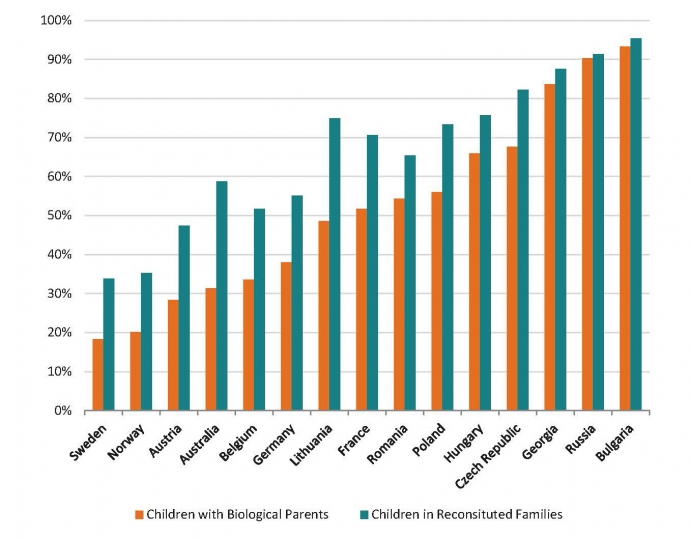GGP at a Glance No. 32 / February 2017
Download GGP_AT_A_GLANCE_032-Jan-Feb-2017.pdf
The experience of poverty during childhood is associated with poorer outcomes in terms of a child’s health, education, psycho-social wellbeing and socio-economic attainment in later life. Levels of children living in families struggling to make ends meet financially vary significantly across Europe. Additionally, the percentage of children living in poverty is higher among children living in reconstituted families than children living in biological families. In Central and Eastern Europe, the percentage of children living in reconstituted families that experience financial hardship is between 75% in Lithuania and 95% in Bulgaria. Notably, despite lower percentages of children living in poverty in Western and Northern Europe, there is still a significantly larger percentage of children living in reconstituted families experiencing financial hardship as compared with children living in biological families.
Percentage of Children whose household struggles to make ends meet financially

Generations and Gender Survey, Wave 1. Subjective poverty was meausred using variable a1002 and includes families who said they made ends meet with either “Great Difficulty” or “Some Difficulty”. Children in single parent households were excluded from the analysis.